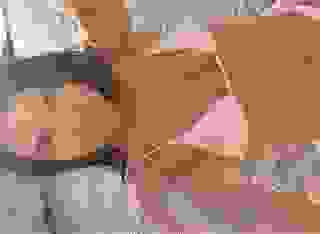- Novels and Novellas
- Spartacus Ch. 01
Note: You can change font size, font face, and turn on dark mode by clicking the "A" icon tab in the Story Info Box.
You can temporarily switch back to a Classic Literotica® experience during our ongoing public Beta testing. Please consider leaving feedback on issues you experience or suggest improvements.
Click hereChapter One
Capua, Italy
73 B.C.
They were finally free. No longer would they be forced to fight and fuck for the amusement of the Romans. Yet, their journey had only just begun and the worst of the hardships still lay ahead. Only 73 Gladiators managed to escape Battiatus' Ludus, as well as several female slaves and the Ludus' medico, out of the 200 men who fought under Quintus Battiatus' ownership. Most of the men had fallen to arrows from the guards on the balconies as the gladiators had used a long wooden bench to lever open to gate that separated their quarters from the training yard and the rest of the ludus, protected only by the overturned wooden tables that they had hoisted up as a screen. Their situation was made more difficult by the fact that all the men came from extremely varied backgrounds and spoke a variety of different languages, though most had learned some level of basic Latin. There were men from Numidia, Spain, Gaul, Germania, Thrace, Syria, Sarmatia and Egypt, many of whom were warriors captured in battle against Roman armies.
Though Scythian by birth, Spartacus had been sent to live in the Thracian Odrysian Kingdom as a royal hostage as a teenager for the alliance between his father, the Scythian King Aetas, and the Thracian king Seuthes. Unfortunately for him, there had been a coup and the usurping king broke his alliance with the Scythian horse lords of the steppe to the northeast, instead seeking an alliance with the Scythian's more numerous Sarmatian cousins to the northwest. Instead of death, Spartacus had been sold as a slave to Rome after the usurper claimed he had attempted to foment rebellion against Rome. It didn't matter that he had voluntarily fought in the Roman auxiliaries to help fulfill the obligation set upon his adopted people by Rome.
Ariadne, Spartacus' wife and a Priestess of Dionysus, had willingly followed him into slavery along with her two apprentices, Cottya and Helena, who escorted her everywhere to provide comfort and protection to their mistress, and Spartacus' pet wolverine, Max. Often acting as the High Priestess' body doubles, the apprentices were highly trained in an ancient martial art that allowed them to kill with or without weapons.
Ariadne was everything a man could ever want in a wife, and then some. Long raven hair that grew in loose natural curls framed a stoic but kind face, pale ivory skin and ocean blue eyes completing the beautiful picture. A slim, firm body served to accentuate the soft flare of her hips, the roundness of her tight ass as well as the very large breasts that seemed out of place on her slim form. Looking at her, a modern viewer would likely swear under oath that she was a fashion model if it wasn't for her huge breasts, her stern but statuesque face reminiscent of a modern eastern European fashion model. Her unmarred beauty of her porcelain skin was interrupted only by the religious tattoos that adorned her upper arms in mosaic of highly detailed arcane runes, zigzags and mythical beasts in deep black ink Ariadne was a Priestess of the Cult of Dionysus, more than that, she was a Maenad. A Dionysian witch who dedicated herself to the mysterious god through arcane worship, ancient ritual and strange nocturnal practice of ecstatic ceremonies.
Shortly after their escape from the Ludus and flight from Capua, their group had stumbled upon a caravan transporting new gladiatorial arms and armor to the city. The fortunate find had added to the bows, arrows and spears that they had liberated from the guard's armor in their escape, having used cleavers, knives and spits to kill the surprisingly tenacious guards that fought to keep them in the Ludus of Battiatus. Fully armed, it had been simple to set an ambush and wait for the Campanian patrol that had been sent after them, thinking they had only to round up a few errant slaves. The resulting slaughter had been savage but brief and they had gained the weapons, shields and armor of the guardsmen. There had been a two more attempts by forces of city guards augmented with angry townspeople to attack the gladiators but both met with resounding defeat, adding to their weapons and loot.
Now, they sat on top of Mount Vesuvius, overlooking the cities of Herculaneum and Pompeii below across the bay. After defeating the city watch sent after them and ravaging the countryside, Spartacus knew the Romans would send a force of actual soldiers to put them down. Not a single caravan had been able to pass through the surrounding area and the former slaves had acquired a decent amount of food, wine, supplies and loot. They currently had more weapons, both Roman and Gladiator types, than they had men to use them. Still, Spartacus had ordered the men to round up wood and anything useful from the area around the base of the mountain.
Spartacus had known what to expect yet he was still shocked when 3,000 Roman soldiers led by a Praetor arrived to besiege the mountain. With less than eighty fighting men, it seemed that there was no way to prevent their extermination. Even worse, the Romans weren't going to try to charge up the single narrow path that led to the mountain top that they had inhabited, seeming perfect content to wait until the slaves began to starve before marching up and putting them all back in chains. A gloomy resignation seemed to fall over their group, extinguishing the small amount of hope that had begun to form in their hearts.
However, when he looked down the cliff face on the opposite side of the mountain from the Roman camp, he laughed in realization as an idea formed in his mind.
:..:
As the Champion of Capua, Spartacus had been the most senior gladiator in the city, let alone Battiatus' ludus. As such, he was the group's natural leader, however it helped a great deal that he was more familiar with the Roman army and it's workings than most Romans were, hacking fought alongside the legions in a campaign against Mithridates of Pontus. Spartacus had been trained in Scythian mounted combat, Thracian warfare, Roman tactics and Gladiatorial fighting, giving him an unusually educated perspective and wide range of skills. Still, the men were looking at him like he was crazy when he presented his idea.
"Vines? What the hell are you talking about Spartacus?" Crixus grumbled.
Oenamaeus and Castus gestured for him to continue while Gannicus began to form a smile as he intuited Spartacus' idea. Spartacus continued, "the slopes are covered in these wild grape vines. Hades, it's the only thing up here at all aside from the damned rocks. If we weave them together thickly, we can make ropes that would support the weight of a man."
"So? What good will that do us? Are we to strangle 3,000 roman soldiers?" Crixus asked, seemingly interested now.
"No, the ropes aren't weapons, they're ropes. We can use them to rappel down the cliff around back of the mountain. The Praetor, Glaber, didn't send out scouts and only posted lookouts at the foot of the trail leading down from the mountain."
"There are still three thousand Romans", Castus pointed out.
"True. But they aren't legionaries, just Roman militia. To make sure we are unobserved, we will have to descend at night. That means that we can attack the camp while they sleep."
"There are less than 100 of us! Even if you include the few shepherds that have joined us!"
"If we stay here, we die. A few of us might be unlucky enough to be cast back into slavery, no doubt sent to die in the mines, but for the rest of us it'll be starvation or a sword in the guts after you're too weak to lift a sword", Spartacus pointed out. "At least this way we can die in battle if we fail. However, I think if done right, we might even have a small chance of succeeding."
"Alright, what are you thinking?" Castus sighed.
:..:
A sprained wrist was the only injury suffered in the night time descent down the cliff face around the mountain's back side. The men now crouched in a stand of trees just beyond the perimeter to the roman camp. In his arrogance, Praetor Glaber hadn't dug a trench or constructed ramparts or a wall, simply posting a couple sentry on each side of the camp. In truth, nobody could really blame him. Who would expect a hundred slaves to attack a roman force of three thousand?
The men, their faces and bodies darkened with charcoal, fingered their weapons as they waited impatiently for the sentries to be eliminated by the small groups that had stealthily crawled forward with daggers clenched in their teeth. The Gladiators had all armed themselves in the same fashion that they had when they were in the arena, Murmillo gladiators modeled after the arms of a Legionary with large Scutum shield and Gladius short sword, Thraex fighters meant to resemble the Thracians armed with the Sica sword with its curved, scythe shaped blade and smaller Parma shield and even Retiari with their trident and net as well as a sling with a pouch of lead bullets. Spartacus had fought as a Dimachaeri, a lightly armored gladiator with only greaves, leg wrappings and a manica on each arm for defense, who fought with a sword in each hand, using speed and skill to avoid damage. He had also armed himself with a surprisingly nice composite recurve bow and a stuffed quiver of arrows that one of the local slave hunters had carried. He had made sure that each man who was skilled with bow or sling armed themselves from the missile weapons that the group had captured while the rest carried at least one javelin.
The hoot of an Owl call signaled success removing the sentries on duty. Slowly, the gladiators crept forward like predators stalking their next meal. Spartacus had given his orders, being as specific as he thought the gladiators' limited discipline could handle but knowing that once the fight started, things would follow their own course. The slaves formed into groups of three and fanned out silently through the camp, taking up their positions and waiting for the fight to start. The group's of men armed with bows and slings interspersed themselves throughout the groups of sword armed men, ready to pick off any roman in sight. The groups had spread out to appear more numerous but also do that they could attack the tents from two sides.
With a hand signal down the line, Spartacus signaled the start of the attack. Instead of entering the tents of the sleeping legionaries, the men simply hacked through the tent's ropes so that they collapsed on those inside. After that, it was quite easy to stab a javelin or chop down with a sword through the canvas on the squirming figures. Spartacus himself approached the nearest tent and slashed through the ropes before using both swords to cut and slash at different angles causing the men inside to scream in agony at missing limbs or eviscerated torsos caused by the twin Sicas that he bore in each hand. The cries of pain and fear echoed through the camp and soon the camp began to stir in response.
As Spartacus brought his left hand Sica down in a backhanded diagonal downward swing, the beak-like tip of the curved sword struck the face of a waking soldier. The forward curving edge passed through the tent's canvas siding and cleaved off the unfortunate victim's jaw, causing the man's resulting scream to manifest as a sickening gurgle emerging from the ruined flesh of what used to be his face. As he paused and looked around, Spartacus saw that most of the shepherds lurked right at the edge of the light cast by the legionary's campfires, slinging stones and shooting arrows at any Romans who managed to successfully exit their tents. However there was around a dozen shepherds who had slipped ahead of the wave of panic slave's advance carrying writhing canvas sacks. Upon reaching their targets, one man per tent, the shepherds untied the rawhide strips holding the sacks closed. As one, the all softly placed the bags inside the tents' openings and then quickly cut the supporting ropes with daggers.
The Romans inside those particular tents, some of the smarter ones deciding to put on their armor and grab their swords before checking to see if a few scattered screams inside the enormous camp constituted an emergency. The rest of the men were groggily being woken up but, for either group, it was too late. When the tents collapsed in on themselves there was a flurry of movement accompanied by unearthly screams and screeches in several of the unfortunate tents cursed with a wriggling canvas sack. The remaining few tents had only terrifying hissing to interrupt the screams of men with occasional choking sounds as the men found themselves helplessly blinded and entangled under the falling canvas without weapon or armor. The sacks had contained badgers, foxes, even two lynxes, adders and vipers that had been corralled and captured in the surrounding woods. The animals, finding themselves intimately entangled with humans, went berserk and attacked anything in sight in their overwhelming fear. The dog sized Lynxs tore into the men in a fury, the badgers were perhaps the worst in their savage violence and the vipers delivered venomous injections that were only occasionally lethal in themselves yet the screaming men and the sounds of raging animals spread panic more intensely than the fires that were now spreading in other parts of the camp. The distinct advantage supplied by having men blind and caught up in the canvas and ropes of their collapsed tents allowed the animals to inflict much more damage than would've been possible with an unencumbered, sighted, armored, armed and prepared group of soldiers.
More concerned with spreading panic than achieving the unrealistic goal of killing every man of the Roman militia, Spartacus moved quickly between tents, simply hacking down into the writhing clothe covered mounds with his twin swords a dozen times before moving on. Legionaries were beginning to exit their tents before the slaves could reach them and Spartacus knew that if they got a chance to form up properly, he and his men were dead. Following his instructions, the archers and slingers, who had been picking off soldiers without discrimination, began to focus their fire on anyone trying to rally the enemy. Right on cue, a centurion a few rows down calling men to form up on him was silenced mid-call as a lead sling bullet penetrated his forehead.
Sheathing his swords and drawing his bow, Spartacus began to put arrows into any men who were turning to engage the gladiators, though many simply fled. He hadn't considered the effect that the soot darkened bodies of his men in the night would further terrify the Romans. One legionary shrieked that demons were attacking the camp and from then the panic spread rapidly with many of the soldiers, being low quality, fleeing before even laying eyes on the intruders. His men ran around, skin blackened and covered with blood, gleefully slaughtering their former overlords and laughing like maniacs. No wonder the bad yards were so terrified. In melee combat, there wasn't anyone on earth better than a gladiator and the Roman's were used to fighting in formation, with the support of their comrades-it was what made them so formidable, but if the formation broke then they were screwed.
In the dark, it was hard to tell how many of the fiercely savage enemies were attacking them with unbelievable skill yet the senior centurion managed to form up a good number of troops near the Praetor's command tent. This group alone outnumbered the slaves and Spartacus knew that they could easily defeat his men if they were given half a chance. Calling men back from chasing the survivors, they formed loosely in a circle around center of the camp, ringing the hundred or so legionaries who hadn't fled the camp in terror.
On his orders, the men stayed low, ducking between tents to prevent the Romans from seeing how few they were. At his command, the men all stood up and loosed their javelins, arrows, sling stones and lead bullets into the group from all angles. Without time to raise their shields, the Romans were shredded by the missiles, losing more than half of their number in the volley. Ever professional, the centurion consolidated his troops and ordered them to form a tetsudo so that the large shields formed four walls and a roof that protected the legionaries but left them no room to maneuver our fight. Knowing that the gladiators would suffer heavy casualties in a direct assault, Spartacus ordered the just the slingers to target the exposed feet and lower legs of the Romans but not fire yet while the rest guarded against possible groups of reformed soldiers and he looked around in a search for an alternative.
Finding the barrels of olive oil, Spartacus ordered his men to quickly move a few barrels to all four sides. Once in position, the barrel tops were broken open and tipped over, the oil splashing and rolling down the wet grass to form a shallow puddle under the feet of the Romans causing several of them to slip and fall after trying to move a foot. The men that fell created gaps in the shield wall and his men's arrows zipped through the gaps without Spartacus even having to tell them to take advantage of the opportunity. At his hand signal, the slingers loosed their stones at under the bottom rim of the Roman shields, shattering bones and tearing flesh as they brought down a dozen men. Though a two dozen arrows and half as many javelins passed through the gaps in the tetsudo, the injured men were pulled back up and into formation, their saturated clothing and scooping shields splashing olive oil all over their comrades in the process. Quietly, Spartacus whispered a prayer to the Divine Rider, as the war deity of the Scythians the god was only rivaled in worship by the goddess of nature and the earth itself, which said something about them as a people. Sadly, Spartacus simply tossed a torch forward and watched as the legionaries were consumed by fire from the feet up, those who had fallen in the oil pooled at their feet were the first to go as their soaked clothes immediately burst into flames. A nasty way to go but the Romans would've done worse had they caught the slaves.
Out of the corner of his eye, Spartacus saw a growing group of unarmored and shieldless, but sword bearing Romans stopping and forming into a group as they looked back at the slaves after the screams of their fellows caught their attention, who were now illuminated by the large conflagration. At a harsh order, all of the men with bows and javelins stepped up and dipped the tips of their missiles into the edge of the burning pool of oil, many others joining in with Roman pilum javelins that they had picked up off the surrounding ground. At another barked command, the men all turned and loosed their missiles at the group that had been watching them. At only thirty yards and without shields, the Romans were cut down by the concentrated barrage of nearly one hundred flaming projectiles as well as invisible stones moving faster than an arrow. Several of their men actually caught on fire as the flaming tips ignited their wool tunic in the process of entering their bodies, who then proceeded to spread the flames amongst their comrades as they thrashed madly and flailed their limbs to all sides. The few survivors were finished as their skulls were destroyed with a few slung stones.
His men cheered, chanting his name in the euphoria of their monumental victory. Even the usually dour and occasionally brutish Crixus seemed excited and took up the chant. Their leader had done the impossible and they had participated in the destruction of a roman force numbering 3,000 while only suffering a dozen casualties and three dead.
:..:
Back at their camp on top of Vesuvius, the returning men were greeted as heroes by the women, who had sat anxiously awaiting their painful return to slavery. Ariadne and her apprentices had kept the women busy, teaching them how to knap arrowheads, spearheads and knives out of the obsidian that was greatly abundant in the area. They also dried, shaped, carved and heated wooden staves into spears and arrows, allowing for the wooden tips to harden as the pitch in the wood carbonized on it's surface and joined with powdered stone, providing a strength superior to copper.








